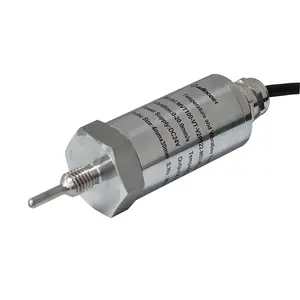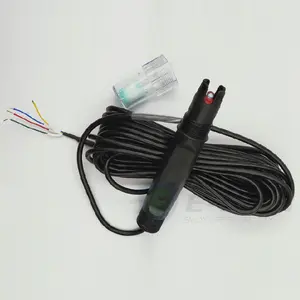Vibration Sensors: An Integral Component for Modern Technology
Vibration sensors, fundamental to the operational integrity of a vast array of systems, serve as critical components in detecting and measuring oscillatory movements. These devices convert mechanical vibrations into electrical signals, offering real-time data crucial for maintenance and monitoring purposes. The versatility of vibration sensors is evident in their broad spectrum of applications, from enhancing the performance of domestic appliances to ensuring the reliability of aerospace mechanisms.
Types and Applications of Vibration Sensors
The landscape of vibration monitoring sensors encompasses a diverse range of types, each tailored for specific applications. Key variants include accelerometers, used extensively in motorsport for performance analytics, and gyroscopes, vital in maintaining stability in aerospace technology. In the realm of agriculture, vibration meters play a pivotal role in machinery maintenance, preventing costly downtimes. The medical field benefits from specialized sensors that contribute to the delicate operation of diagnostic and therapeutic equipment.
Features and Materials
Vibration sensors are designed with features that cater to the demands of various environments. For instance, wireless vibration sensors offer the convenience of remote monitoring, a feature that is increasingly sought after in the age of IoT. The materials used in sensor construction are selected for their durability and sensitivity, ensuring accurate readings and longevity in harsh industrial settings.
Advantages of Advanced Vibration Detection
The integration of vibration detectors into systems provides numerous advantages, including the early detection of potential failures, thereby mitigating the risk of unexpected breakdowns. In HVAC systems, for example, a vibration probe can signal imbalances or misalignments before they escalate into more significant issues. Similarly, in the field of calibration equipment, precision is paramount, and the sensitivity of a laser vibrometer ensures high-fidelity measurements.
Innovations in Vibration Sensing Technology
Technological advancements have led to the development of bluetooth vibration sensors, which facilitate wireless data transmission, enhancing the ease of integration into existing systems. For enthusiasts and professionals alike, the availability of vibration sensor Arduino kits opens the door to custom solutions, allowing for the DIY creation of devices tailored to specific needs.
Choosing the Right Vibration Sensor for Your Industry
Selecting the appropriate vibration sensors for industrial applications is a nuanced process that involves considering the specific conditions and requirements of the operational environment. Whether it's a motor vibration sensor for monitoring industrial machinery or a remote vibration sensor for inaccessible or hazardous locations, the right choice hinges on the sensor's specifications and the intended application. Alibaba.com's platform connects buyers with a plethora of suppliers, offering a wide selection to meet industry-specific needs without the constraints of traditional retail.











































 浙公网安备 33010002000092号
浙公网安备 33010002000092号 浙B2-20120091-4
浙B2-20120091-4